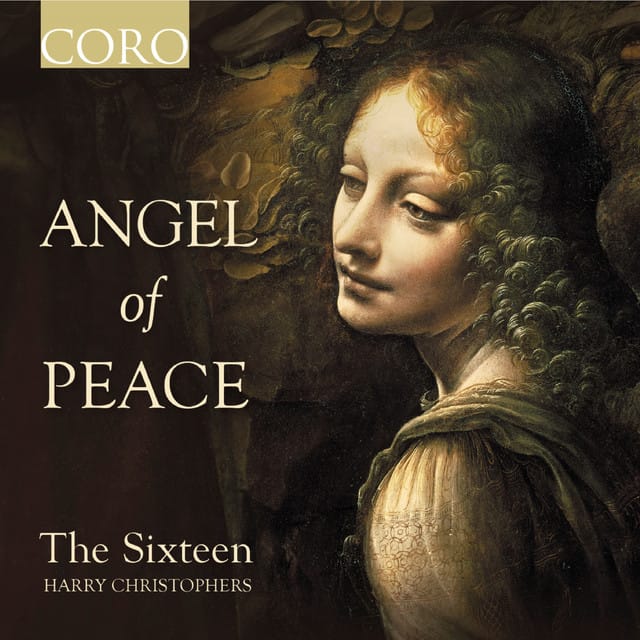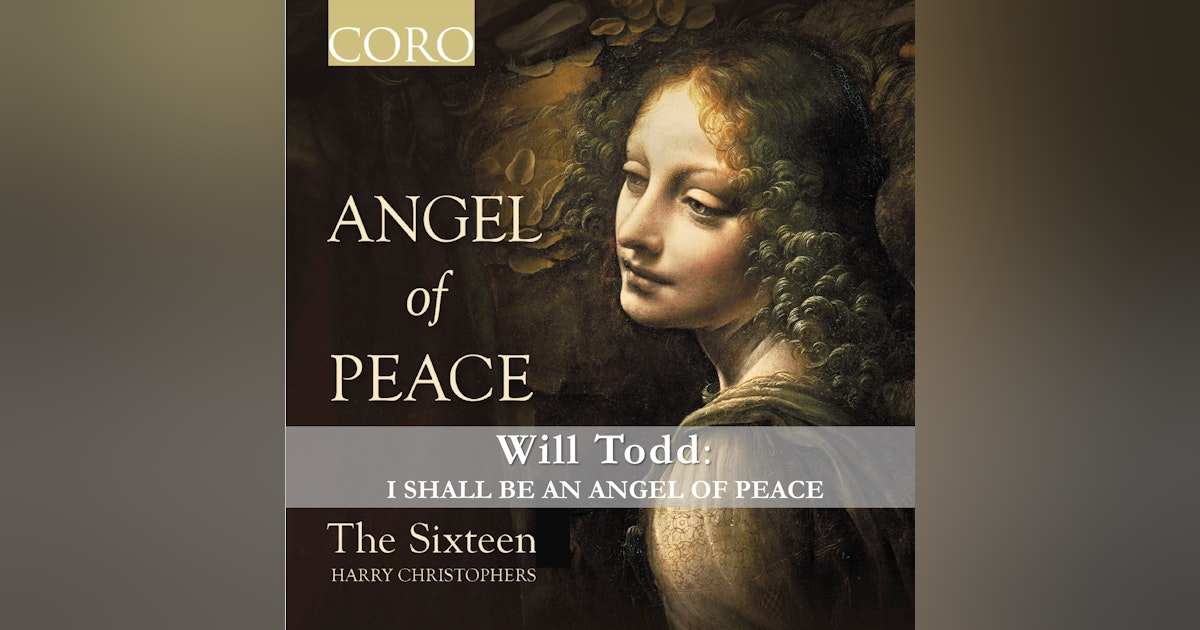
Each year, the vocal group The Sixteen releases a new album on the CORO label to accompany the choir’s nationwide Choral Pilgrimage tour, which sees them visit over 20 locations across the span of 7 months, which began on Monday 17 March at Croydon Minster.
Here’s the promo video:
This year’s album – Angel of Peace – focuses on bringing peace and tranquillity to day-to-day life, with performances of today’s finest composers Anna Clyne, Arvo Pärt and Will Todd, in addition to the healing and wondrous music of Hildegard of Bingen and John Taverner.
Where better to begin than with Hildegad of Bingen. We recently heard a modernised version of one of her pieces at Wigmore Hall, O vis eternitatis. Here, it is the Ave generosa that peppers the disc: we begin with vests 1-4; verses 5-7 act as a midpoint.The first four verses s up the idea of the union of the Divine via the lily (the Virgin Mary’s womb):
Arvo Pärt’s typically slow-moving, radiant A Tribute to Caesar makes us all the way from Antiquity to 1997 in realisation of the story in Matthew when the Pharises ask Jesus, “Is it lawful to give tribute to Caesar?”. The Sixteen is superb here, the harmonies absolutely glow, and rise in dynamic so slowly and carefully:
The disc actually takes its title from Will Todd’s piece, I shall be an angel of peace for choir and solo violin (here the excellent Sarah Sexton). The violin is used tellingly as commentator, and individual voice gist the massed choir. The text is a reworking by Ben Dunwell of Newman’s prayer. The acoustic (the lovely All Hallow’s, Gospel Oak, London) is perfect for this piece; Sexton is an amazing player, so expressive:
It’s John Taverner next; note the ‘r’, this is the copter whose dates are c. 1490-1545. and so we are talking the age of King Henry VIII. In Gaude plurimum, the ex praises the Virgin Mary: lines are florid, almost ecstatic. The Sixeen’s sopranos are fearless; there is no sense of strain. A remarkable piece, using nearly 14 minutes. Enough time to lose oneself in Taverner’s world, anyway:
The second part of Hildegard’s Ave generosa is a celebration of the union established in verses 1-4. This is a holy celebration, however: he music thins to the merest thread at one point. And just listen to some of the essences Hildegard uses against the drone:
The Sixteen’s performance of Pärt’s Da pacem Domine is another album highlight. Ot uses that composer’s “tintinnabuli” technique (it means “little bells”) and is pure and beautiful, The Sixteen’s sopranos beautifully pure, the basses providing.firm foundation.
Another piece fo choir and violin, Anna Clyne’s Orbits was commissioned as a partner piece to the Todd. The text is n English translation of Rilke. It is a mediation on time and solace, creating a space of peace. As we saw in a news post, Clyne is the BBC Philharmonic’s Composer-in-Association for the 2025/26 season:
Lovely to hear Pärt’s Magnificat: see this post (Miserere) and this post for more Pärt.
The Sixteen’s performance of this Magnificat is nothing short of resplendent. It is magisterial; but I is quite right it is John Taverner that has the final word. His O splendor gloriae is a motet in praise of the Holy Trinity, somewhat less florid than Gaude plurimum, perhaps a reflection of the Reformation’s emphasis on clarity. There is speculation this is co-authored with Chrisopher Tye. Whatever the case, it is stunning, and the perfect close.
A wonderful disc. A quick reminder of The Sixteen’s other discs featured on Classical Explorer: Siren’s Song, and An Old Belief.
Angel of Peace is available at Amazon here. Streaming below.










